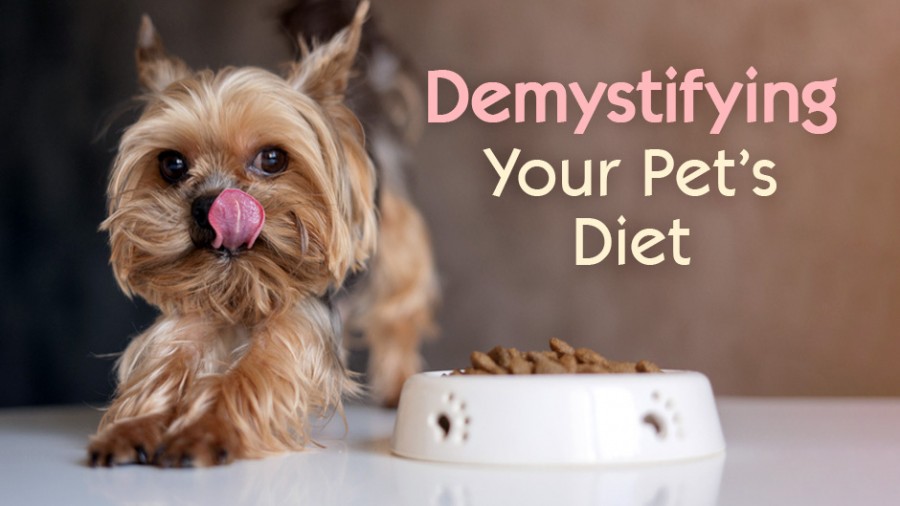Whether you have a melon Collie or a cat-fish, your pet's diet matters. "You are what you eat" applies to our animal companions, too. A pet's health, weight, lifespan, and cognitive function rely on the diet you provide. The options for pet parents seem to multiply each year, making the decision of what to feed your pet increasingly difficult.
If you've found it tough to find what's best for your pet, you're not alone. With all the buzz words and ad campaigns pushed by the major pet food suppliers, it's easy to get lost in the kibble. What do you need to know about your pet's diet? We're here to help.
Why Does Your Pet's Diet Matter?
Many health issues can crop up when your pet doesn't have the right diet for their needs. From obesity to food intolerances, cats and dogs can struggle with getting the right nutrients from their food. Proper nutrition and a balanced diet come along with long term health benefits.
A healthy diet gives your pet:
- Healthier joints and skeletal structure
- Better oral health
- A healthier coat and skin
- Fewer infections
- Better behavior
- Less digestive issues
- A healthy level of energy
- Less risk of disease
What Pet Diets Should Owners Avoid?
Most pet owners want what's best for their four-legged family members, so it's especially heartbreaking when we see pets suffering from poor nutrition. We often find the following fad diets for pets cause more harm than good.
The Raw Diet: Pet parents are inundated with ads that tell them their cat is a mountain lion at heart and their dog is a wolf, lead to the raw diet rage. While it's true our pets have an easier time digesting raw meat when compared to humans, there are still risks associated with raw diets.
Pets have been domesticated long enough to make digesting raw foods more difficult than it is for wolves and other wild animals. Raw meats can more easily develop bacteria and salmonella, which can be spread to the human members of your family. Some studies suggest that pets fed strict raw diets more frequently develop digestive issues like IBS, IBD, and leaky gut disorder.
The Grain-Free Diet: The FDA has been investigating grain-free diets for pets since an increase in heart failure was found in healthy dogs that weren't typically expected to have cardiac issues. The grain-free craze is a great example of a fad gone awry with potentially fatal results.
The Homemade Diet: Endless blogs will tell you that a homemade pet food diet allows you to know exactly what's going into your pet's food bowl. While technically accurate, homemade diets often lack essential nutritional elements.
Unless you're a nutritional veterinarian or have consulted with one, it's difficult to know exactly what your pet needs. At our practice, we've treated dogs and cats that have toxic levels of vitamins in their bodies after their owners overcompensated for homemade meals.
The Vegetarian or Vegan Diet: While some pets can thrive on vegetarian diets, they need to be designed by veterinary nutritionists to be sure they have the nutrients your pet needs to sustain his or her health. Cats, in particular, need essential amino acids found only in animal protein to stay healthy.
What Diet Is Best for Your Pet?
Just like people, each pet has individual dietary needs. What's best for your pet often depends on their age, size, breed, activity level, and health history. While you can scour the shelves or internet all day comparing labels, you could also make an appointment with us. We would love to work with you to find the best dietary options for your pet.
We're Here to Help You Treat Your Pet to A Lifetime of Healthy Dietary Choices
Whether your pet is overweight, struggles with food intolerance, or is ready to transition to a more nutritious diet, we can answer your questions and provide you with the information you need. Avoid the guesswork and find sustainable nutrition for a lifetime of play, love, and balance for your pet.
Image credit: Valeriya21 / iStock / Getty Images Plus

